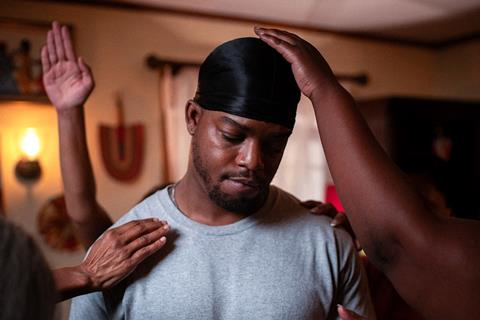One of the most rewarding aspects of being a film critic is the opportunity to attend the Sundance Film Festival and observe an actor for whom one has long stood in support, finally achieving a significant breakthrough role. This sentiment is particularly relevant in the case of actor Stephan James, who collaborates with first-time director Rashad Frett in “Ricky,” an adaptation of Frett’s short film of the same title.
Frett writes the screenplay while Lin Que Ayoung introduces us to Ricky, a 30-year-old man played by James. Recently released from prison after spending his teenage years behind bars, Ricky now faces the complex realities of life after incarceration. He struggles to navigate the complexities of gaining independence for the first time as an adult.
Ricky is looking to do right by his mother (Simbi Kali), make amends with his younger brother James (Maliq Johnson), and try not to lose his cool around his former best friend Terrence (Sean Nelson), who played a part in his getting locked up. His no-nonsense parole officer, Joanne (Sheryl Lee Ralph), also refuses to see him return to jail. Along the way, Ricky comes into contact with numerous characters, including a down-to-earth army vet, Leslie (Titus Welliver), and possible love interest, Jaz (Imani Lewis)
The core of the film portrays a man caught between his past as a child and his present adult identity. Through his writing, Frett creates an emotional world where Ricky embodies a betrayed adolescent trapped within an adult physique that must adjust to a world that has advanced without him.
The movie explores how he reaches out to his Caribbean mother, living in Hartford, Connecticut. At the same time, he tries to make sense of lost opportunities in relationships, technology, and social standards he missed during his youth. His barber skills might help him, but it remains uncertain if this will fulfill his parole conditions and grant him a new beginning.
Stephan James gives an outstanding performance as Ricky, portraying his silent strength alongside his hidden fragility. Sheryl Lee Ralph portrays Joanne with excellence as Ricky’s direct yet caring parole officer, balancing the story with her intricate representation of authority alongside care.
Frett directs in a way that seamlessly blends sensitivity with authenticity to create a film that feels deeply real. Through his empathetic storytelling, Frett transforms Ricky’s survival struggle into a narrative about reclaiming a life that never truly belonged to him in the first place. Frett’s first film reveals him to be a filmmaker who understands human nature while showing dedication to meaningful storytelling.
Final Grade: A-
“Ricky” is currently seeking distribution.





